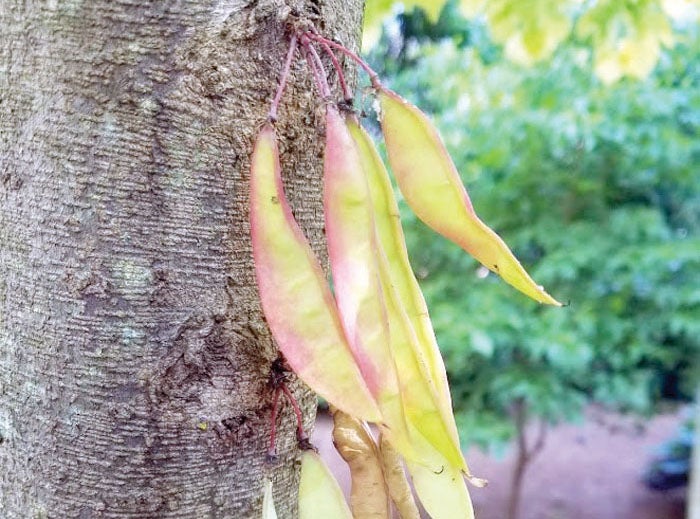H&G Q&A: Legumes, leftovers and lizards
Published 12:00 am Sunday, May 23, 2021

- Redbud pods
A few weeks ago, we had weather so cool I had to wear a sweater. Now the weather has done an about-face with summer temperatures. Many are starting to see changes in their landscape plantings. Below are questions homeowners have posed over the past few days:
Question: We purchased one of those new types of redbud trees last year, Rising Sun. It has finally started to grow and now has pods all over the tree. One of my neighbors told me that the tree was actually a legume. I thought soybeans were legumes? Can a tree be a legume also? Answer: Yes. There are a number of trees that are true legumes including mimosa, black locust and wisteria-just to name a few. Soybeans, garden peas, black-eyed peas and peanuts are more common legumes.
Question: There are a number of very small tree saplings that reoccur each spring. Is there anything I can spray on the saplings to keep them from coming up each year? Answer: Yes, the best way to control reoccurring small saplings is to treat the stump when you prune them back with a full-strength brush killer or glyphosate (Roundup). The stumps need to be painted, full strength, immediately after cutting to allow the herbicide to translocate to the root system. It’s important to coat the stumps within one hour after making the cut. Stumps will begin to heal-over soon after the cut therefore reducing the flow of herbicides to the roots.
Question: I have a leftover bag of fescue weed and feed fertilizer. Is it too late to put it on my grass? Answer: Yes, unfortunately it’s too late to fertilize cool-season fescue lawns. Late fertilization promotes brown patch in fescue and other cool-season lawns in the early summer months. Save the fertilizer and apply in early fall to your fescue lawn.
Question: We have lizards now around our home. How can I get rid of them? Answer: If you have lizards, it means there’s an ample supply of insects for them to eat. Many homeowners have learned to live with the lizards and let them eat the insects around your home. However, if you control your insect population around your home the lizards will relocate to find another food source. There is no chemical control for lizards.
Darrell Blackwelder is the retired horticulture agent and director with the North Carolina Cooperative Extension Service in Rowan County. Contact him at deblackw@ncsu.edu.



